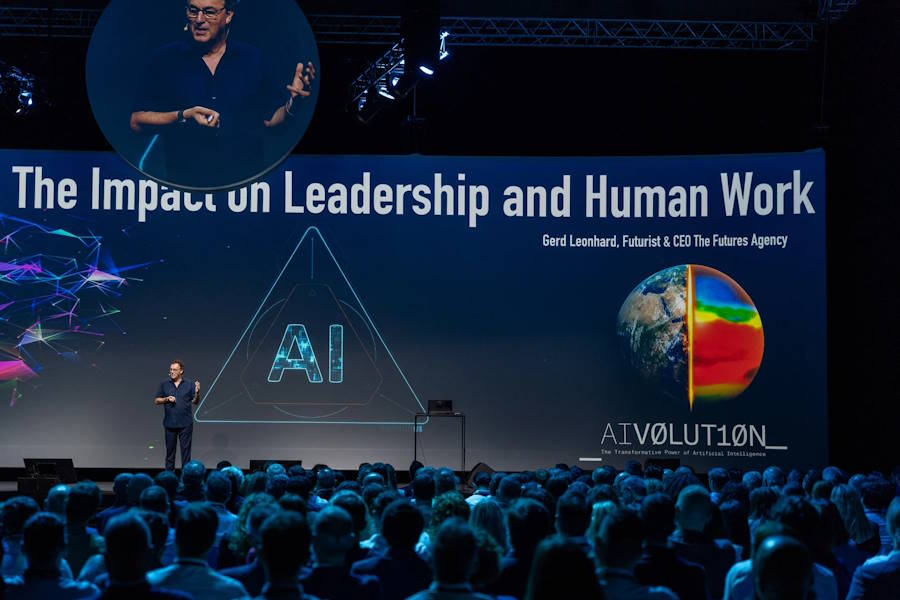Gerd Leonhard: To get good results with AI, you need good data
25/06/2024
# tags: Trends , Technology
During the AIVØLUT1ØN conference, Gerd Leonhard summarised the biggest challenge for companies in using Artificial Intelligence (AI) as follows: you need good data.
German futurist Gerd Leonhard, on the sidelines of the AIVØLUT1ØN conference, held in Lisbon's Sala Tejo, was answering one of the questions posed by Event Point, the event's media partner. "What is the biggest challenge for small and medium-sized businesses in using AI?" And the answer was short and to the point: To get good results when using Artificial Intelligence, you need good data, in other words, if you can trust the data, you can trust the results provided by AI.
Leonhard also gave another piece of advice: There are many basic tools that are not expensive, but that save a lot of time on routine tasks. It's relatively simple to train AI to summarise a 500-page document, for example. What many companies are already doing is training GPTs [Generative Pre-trained Transformers], customising them based on their data - here they are again - and thinking about tasks specific to that company.
The three revolutions
In AIVØLUT1ØN's opening lecture, "The AI Transformation: Impact on Leadership", Gerd Leonhard, author of the book "Technology vs. Humanity", spoke extensively about the enormous potential of this technology, but also about how AI could become a serious threat to our societies. He therefore advocated close monitoring of its development, fearing that the results could be disastrous if we leave everything in the hands of the companies that own these technologies, whose main motivation remains profit.
Admittedly "a humanist", Leonhard has sketched a near future in which three revolutions present themselves: digitalisation, sustainability and purpose. All industries that can be digitised will be digitised sooner or later. And if 90 per cent of our work is routine, we could be in serious trouble, because AI can perfectly handle these tasks. At the same time, we'll have significant productivity gains and we'll be able to free people up for more productive tasks where AI isn't enough - yet, at least.
The sustainability revolution is next. The energy transition is fundamental, abandoning our dependence on fossil fuels and, once again, AI can help us with this challenge. Here too, Leonhard assures us, it's important not to leave everything in the hands of companies. Governments and organisations such as the European Union will have to intervene and regulate the use and applications of these technologies.
The revolution in purpose is the third in this equation. For the new generations, the idea of prospering, making a profit and earning money is no longer enough and can no longer be achieved at any cost. Leonhard is even talking about a new philosophy of life, which he summarises in 4 P's: people, planet, purpose and prosperity.
In short, the German futurist challenged us to embrace technology, but without turning ourselves into technology - by praising the intrinsic qualities of human beings: imagination, intuition, emotional intelligence...
The transformative power of AI
AIVØLUT1ØN was a conference organised by Knower on 29 May, aimed at business leaders who want to understand and explore the impact of Artificial Intelligence on their organisations. In addition to Gerd Leonhard, it featured speeches by neuroscientist António Damásio from the United States and various experts in the room who shared their perspectives on a technology that promises to radically change our days as we know them.


